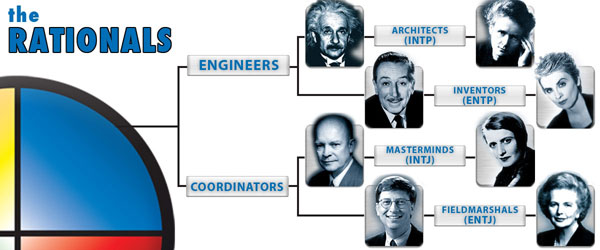

They take the time to consider all angles before forming an opinion. Tradition and hard work mean much to ISTJs and they have a keen sense of responsibility in all spheres of their lives. They are often described as 'The Inspector,' and 'The Logistician' types who have an eye for detail, prefer to do things by the book, and can be depended upon to fulfill any duty assigned to them. People with the ISTJ personality type come across to others as calm and quiet, formal and proper, serious and somewhat intimidating. ISTJ - Introverted, Sensing, Thinking, And Judging Judgment relates to how people go about decision-making once they have perceived information using their sensation and intuition functions. Perception speaks to how people prefer to gather, interpret, and understand information about the world around them. For those who veer more toward the feeling function, decision-making often involves putting themselves in the other person's shoes and considering how the outcome of their decision will affect all involved. Individuals who are more inclined to the thinking function like to stand back and judge situations based on facts and the rules that apply. They look for patterns and theories to aid their understanding and are much more likely to trust a gut feeling about something. Intuition, on the other hand, is used for people who prefer abstract information.

They prefer facts and details that they have witnessed themselves. Sensation (sometimes referred to as sensing) applies to people who like to rely heavily on the use of their physical senses. They may enjoy meaningful contact with others but grow primarily through time spent on their own. Introversion, on the other hand, applies to a person who is more subjective.

The Myers-Briggs Type Indicator for ascertaining personality type consists of four pairs of factors which influence personality.Įxtraversion applies to a person who is more objective, action-oriented, who likes frequent contact with others, and who grows mainly from interpersonal interactions. As a result, individual scores on the MBTI are sometimes referred to as generic characters, such as ‘The Architect’ and ‘The Inspirer.’ Jung often used characters or archetypes to describe personalities. The mother-daughter team of Katharine Cook Briggs and Isabel Briggs Myers created the MBTI based on their review of the work of Carl Jung, a Swiss psychiatrist and psychoanalyst who is considered to be the father of analytical psychology. The other is understanding how the various parts of a person come together as a whole. The study of personality focuses on two broad areas: One is understanding individual differences in particular personality characteristics, such as sociability or irritability. Personality refers to individual differences in characteristic patterns of thinking, feeling, and behaving. The idea is expertly brought out in the American Psychological Association's definition of personality and how it is studied: Packaging them into the 16 personality types, however, makes the broad concept of personality much easier to investigate and understand. So, in reality, there are as many personality types as there are people. That entity (your personality) is what makes you distinct. One way to think of personality is that it grows out of those characteristics to become something greater than the sum of its parts. Personality is unique to the individual and represents a composite of all the characteristics each person possesses. But before we begin, it is wise to understand what we mean by 'personality.' We will follow up that definition with a breakdown of the 16 personality types as suggested by the Myers-Briggs Type Indicator (MBTI) personality test. We will take an in-depth look at how knowing your personality type benefits you.


 0 kommentar(er)
0 kommentar(er)
